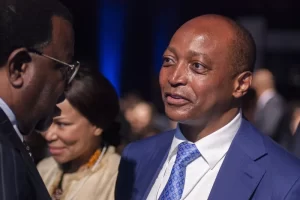Even if Canal+’s acquisition of MultiChoice is approved by its board and all relevant regulators, it will be long before DStv subscribers see any adjustments to their products.
 Given the numerous complaints from DStv subscribers about the company’s annual price hikes and decreasing international content slate, many may be hopeful of significant changes if Canal+ takes control of the company.
Given the numerous complaints from DStv subscribers about the company’s annual price hikes and decreasing international content slate, many may be hopeful of significant changes if Canal+ takes control of the company.
However, it will be a long time before that happens — even if the R35-billion buyout offer from the French media giant is accepted.
MyBroadband asked MultiChoice for a rough timeframe for closing the deal if the board approved it.

“The proposed offer by Canal+ will take time to complete as it is still subject to various regulatory approvals and acceptance by MultiChoice shareholders,” MultiChoice explained.
“It is therefore impossible for us to speculate about timing, the outcome of the proposed transaction, or any potential changes to pricing or content in future.”
MultiChoice stated that shareholders would have ten business days to accept or decline the offer after its conditions are satisfied, including getting the necessary regulatory approvals.
A potential big hurdle that could delay the deal is South Africa’s local ownership and control rules for licenced broadcasters.
According to Section 64 of the Electronic Communications Act (ECA), no foreigner may directly or indirectly exercise commercial broadcasting licensees.
It also stipulates that a foreigner may not have a financial interest or an interest either in voting shares or paid-up capital in a licence exceeding 20%.
Canal+ already owns over 42% of MultiChoice’s shares.
MultiChoice has argued that Canal+’s voting rights were limited to 20% due to restrictions in its memorandum of incorporation, which prevented the violation of these regulations.
However, ICT legal and regulatory expert Lisa Thornton told Daily Investor that Canal+’s ownership exceeding 20% already appeared to be an infringement of the ECA as it was not limited to voting rights.
The Independent Communications Authority of South Africa (Icasa) is responsible for applying the ECA regulations.
Citing people familiar with the deal, Bloomberg recently reported that South African billionaire Patrice Motsepe was in talks with Canal+ to join its bid for MultiChoice, providing a potential avenue to complying with the ownership rules.
Patrice Motsepe
Broadcasting expert and former SABC board member Michael Markowitz said the ECA regulation was similar to a US law that required Rupert Murdoch to become a US citizen before taking control of Fox.
Markowitz believes many will be watching Icasa’s moves closely as the regulator’s former chairperson was hired by MultiChoice in 2023 and recently appointed as group executive for regulatory and corporate affairs.
Markowitz also said there was “no doubt” the transaction would need the approval of the Competition Commission of South Africa.
“The Commission would have to determine whether the merger will result in any change in the competitive landscape that could substantially prevent or less competition in the relevant market in South Africa,” Markowitz explained.
“Canal+ and MultiChoice will seek to paint that market as wide as possible, to include Netflix, Google, and other global players, and portray MultiChoice not as a dominant player in South Africa, but as a regional player under threat from global giants,” Markowitz said.
According to the Competition Commission, it takes about 40 business days to complete its investigation and make a recommendation on a large merger, with provision for “one or more” extensions of 15 business days.
It will refer its recommendation to the Competition Tribunal for a final decision.
The Tribunal can take several weeks before holding a merger hearing, after which it takes ten business days to make a ruling.
Should it refuse the merger, the merging parties could appeal with the Competition Appeal Court.
The Outlier has created a helpful map which shows the dominant broadcasters in each African country, illustrating the potential subscriber growth for Canal+ if its MultiChoice acquisition succeeds.
Aside from the extensive regulatory processes that will need to follow the board’s approval of the proposed acquisition, there are aspects of MultiChoice’s operations that will slow down immediate changes, such as its long-term content licencing deals with major providers.
According to television broadcasting expert Thinus Ferreira, DStv subscribers should not expect any major changes even if the deal goes through, as content and pricing will not be on Canal+’s agenda.
“It’s about money, not about content. It’s about shareholder value and shareholders wanting money,” Ferreira explained.
“The Canal+ takeover bid won’t change anything for DStv subscribers on a fundamental level.”
— My broadband
Share your story or advertise with us: Whatsapp: +2347068606071 Email: info@newspotng.com












